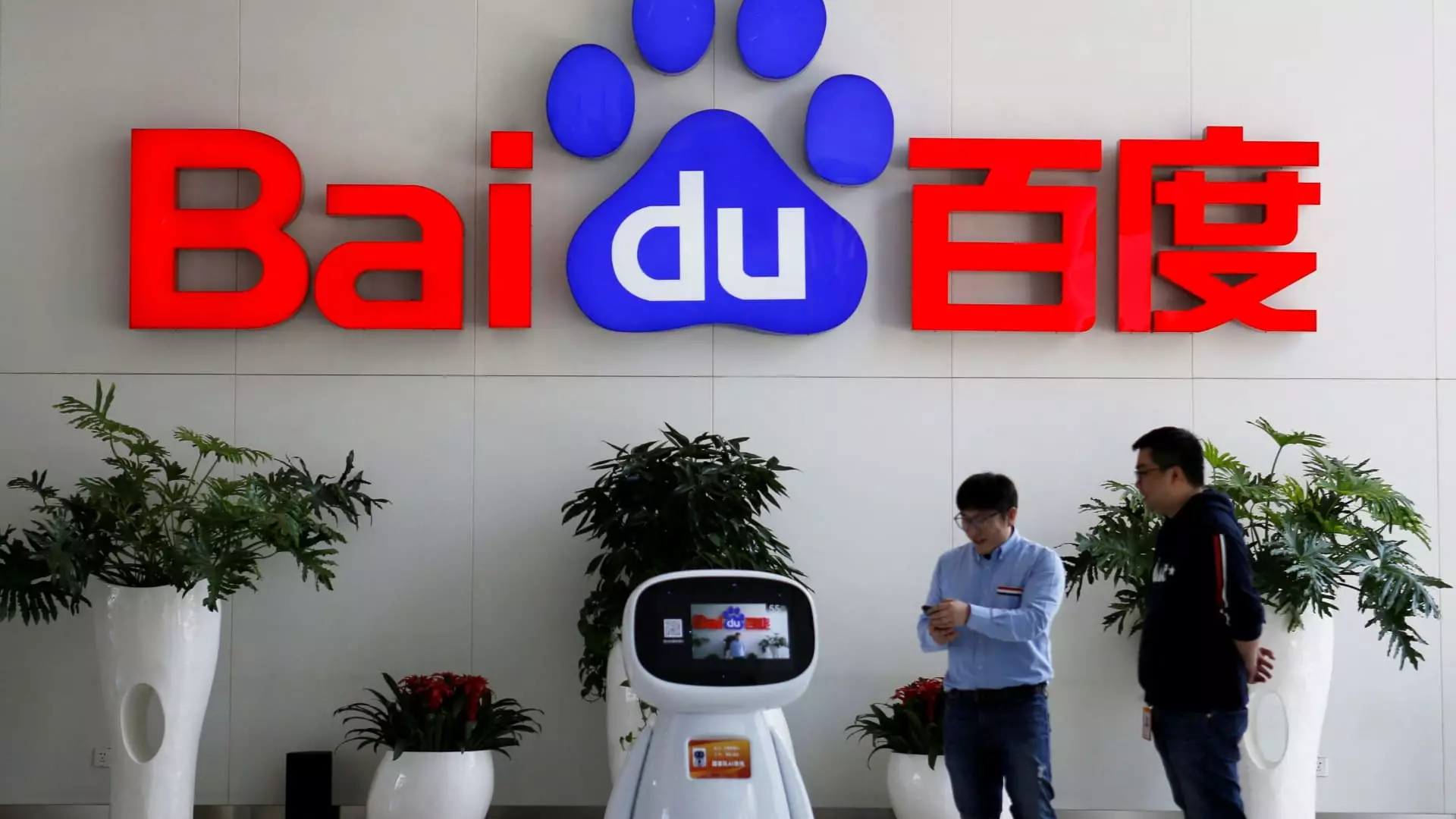As the artificial intelligence sector rapidly evolves, companies worldwide are racing to advance their technologies and remain competitive. Baidu, China’s leading search engine and technology enterprise, is at the forefront of this development, planning to unveil its next-generation AI model, Ernie 5.0, later this year. This comes at a time when emerging players like DeepSeek are shaking the foundations of the AI market, prompting industry giants to innovate aggressively to retain their leading positions.
Baidu’s anticipated upgrade, Ernie 5.0, is expected to introduce significant enhancements in its multimodal capabilities. The term “multimodal” refers to systems equipped to process and understand various forms of inputs, including text, audio, video, and images, and transform them into different formats seamlessly. This versatility is pivotal, as the ability to convert text into video or merge different media types can unlock numerous applications, making AI an integral tool across industries.
While specific details about these new capabilities are not publicly disclosed, the enhancements are likely designed to augment productivity and usability, thus catering to the changing demands of businesses and consumers alike. The pressing need for such advancements is emphasized by the highly competitive landscape, where organizations are vying to deploy cost-effective and inherently intelligent AI solutions.
Baidu’s strategic focus on advancing its AI model comes amid an intense rivalry with global players such as OpenAI and newer innovators. The launch of DeepSeek’s open-source AI model, which generated considerable excitement for its reasoning skills and drastic cost reductions compared to established models like OpenAI’s ChatGPT, underlines the urgency for Baidu to bolster its offerings. Such innovations in the AI sphere threaten to disrupt not just market shares, but also the technological edge that established players like Baidu have enjoyed for over a decade.
As Baidu competes with other prominent Chinese companies such as Alibaba and ByteDance, the stakes are high. Baidu was the first tech giant in China to introduce a ChatGPT-like chatbot, branded as Ernie, in March 2023. However, the subsequent emergence of multi-faceted AI solutions from competitors has hampered Baidu’s initial momentum. Alibaba’s stock price has surged 33% this year, contrasting sharply with Baidu’s modest 6% increase, further highlighting the market pressures it faces.
Baidu CEO Robin Li recently discussed the transformative potential of AI technologies during the World Governments Summit in Dubai, emphasizing that foundational model inference costs could decrease significantly—by up to 90% within a year. Such a reduction presents an incredible opportunity for companies to enhance their productivity while streamlining operational expenses. This proposition aligns with the core principle of innovation that focuses on cost-effectiveness as a pathway for increased efficiency.
Although the operational efficiency afforded by these AI advancements is promising, organizations must also contend with how they integrate them into their existing workflows. Baidu has already achieved notable success with its Ernie model, which supports generative AI across several platforms, including cloud services and content creation tools. The Wenku platform, for instance, has recently reported 40 million paying users, marking a 60% increase since the end of 2023—an impressive success that reflects a healthy consumer appetite for AI-enhanced solutions.
Baidu’s ongoing development efforts are crucial for the company’s future as it navigates a fast-paced environment characterized by groundbreaking advancements and market fluctuations. With the recent release of its Generation 4 Ernie model and continuous upgrades, the expectation for the upcoming Ernie 5.0 is that it not only competes with OpenAI’s latest version but also re-establishes Baidu’s leadership in the AI space.
While speculative discussions about OpenAI’s future models, including the timeline for GPT-5, are ongoing, the industry remains abuzz with the potential transformations awaiting consumers and businesses alike. In this ever-evolving landscape, Baidu’s ability to innovate, integrate, and adapt will determine its position in the global AI ecosystem.
The trajectory of AI innovation signifies a race against time for companies like Baidu to sustain their competitive advantage. As the technology matures and new entrants emerge, only those willing to embrace transformational changes and foster groundbreaking solutions will be positioned to thrive. With Baidu’s focus on multimodal capabilities and addressing cost-efficiency, the company appears poised for a pivotal moment that could redefine its place in the artificial intelligence arena.

